Lupine Publishers | Journal of Modern Approaches in Dentistry and Oral Health Care
Opinion
Maurice Roy was born on 24 December 1866. At 14, he entered a dental surgery as an apprentice technician. In 1884, he enrolled at the Dental School of Paris where he was awarded his diploma in 1886. He became a tenured teacher in 1900. He passed his baccalaureate. He then started medical studies. In order to meet his own needs, he worked as a dentist. He was exempted from military service because of his myopia; he was able to devote himself to writing his thesis he sustained in 1894. When the Dreyfus Affair broke out, at the cries of Zola in J’Accuse! published in 1898, he signed the petition for the rehabilitation of the captain. Having contributed towards the creation of FDI World Dental Federation in 1901, he became a member of its executive body in 1904, then its vice-president in 1911. He was re-elected to the post in 1936. In 1902 he founded the French Dentists Cooperative Society (Cooperative Society of Dentists of France), which supplied equipments to the practitioners of the country. In 1914 he created the relief committee for the wounded to the jaws and the face (Relief Committee of the wounded of the jaws and the face). He dedicated himself: he established surgical and prosthetic rehabilitation protocols that were used by other centers. In 1915 he created the Fraternal aid for French and Belgian war victims dentists (Fraternal help to French dentists and Belgian victims of war). In 1923 he took the lead of The Odontology magazine. Roy made it a key player in dentistry of that time. Every themes were subjectively studied. In 1928 he left the public welfare [1-3].
On 28 July 1933, Roy made the executive body pass a motion during FDI World Dental Congress in Edinburgh after Georges Villain, his president and friend, gave a thundering speech to denounce Nazi crimes and to help Jewish German dentists, that stated that: “The executive body of FDI, that duly gathered in session in Edinburgh on 28 July 1933 only to consider the protection of rights obtained by dentists from all over the world thanks to the diplomas granted by the competent authorities of their respective countries [4], declared that no matter of race, of religion or of politics under no circumstances must limit the liberty and the practising of our duly qualified colleagues. Likewise, no restriction which would lead them to breaches of their moral and professional obligations must be imposed on them.” Having made everything to help their colleagues although unsuccessfully the committee passed this motion unanimously excluding Germany who chose to withdraw from FDI. During the 1936 congress of Vienna, Roy received the Miller Prize for his work: the highest distinction that was awarded by the 33-member countries of the executive body including Germany. He received the Legion of Honor this same year. As they were shouted down during the 1938 congress, the Germans were absent from the 1939 congress of Zürich [5]. While the country was occupied, Roy hid aviators and Resistance fighters in his house. While he was the head teacher of the Dental School of Paris, he prohibited the wearing of the yellow star there, this could have caused him an arrestation from the Pétainist font. During a congress in Paris, he left the inaugural session just as the Germans appeared. That provoked a tremendous outcry. While the demands of the Germans were getting insistent, he stopped practicing his dental surgery in 1942, but kept his positions at the Dental School of Paris, at The Odontology magazine and at the Cooperative until his death [6,7]. His convictions caused him insulting articles in the Occupation newspapers: I’m everywhere. Because he was suspected by the Gestapo, he received only routine visits. Maurice Roy died on 5 January 1947 (Figures 1-6).
Figure 4: Congress of the Fédération Dentaire Internationale in Zurich, in 1939 (Ennis, 1967). Maurice Roy is in the 1st rank, 2nd on the right. There is no German dentist in this meeting.
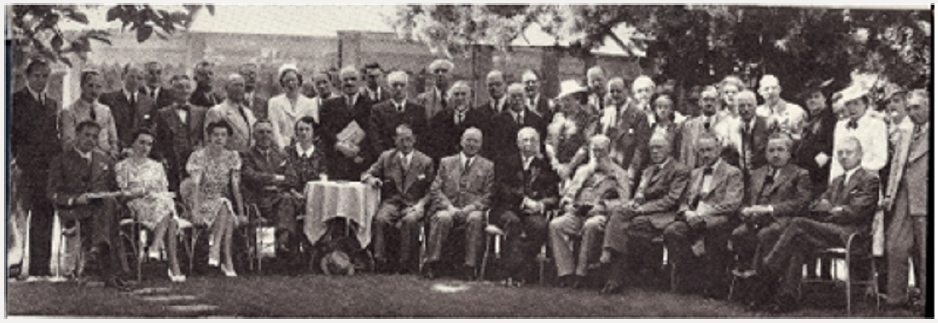
Figure 6: VIIth congress of the German dentists directed by Ernst Stück in 1935, in Berlin (public domain).
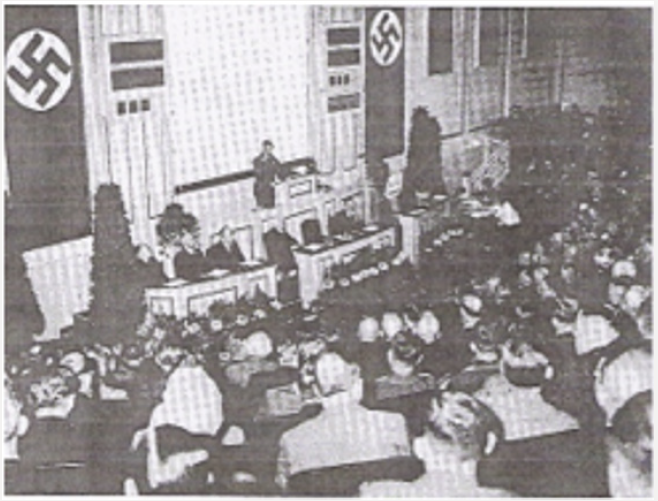

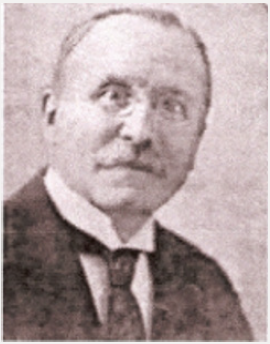
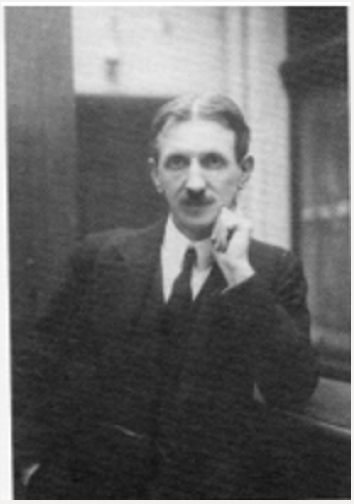

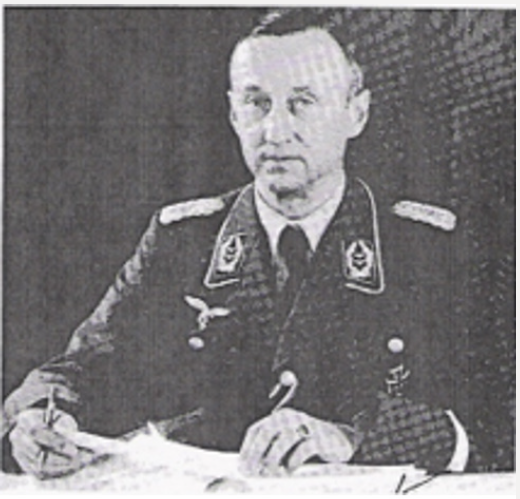
No comments:
Post a Comment
Note: only a member of this blog may post a comment.